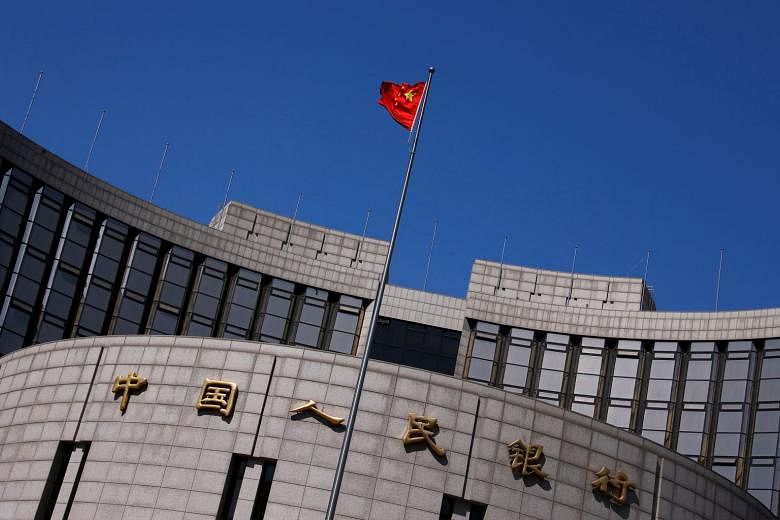SHANGHAI (REUTERS) - China's financial regulators have published new rules to regulate bond trading, with a focus on restricting leverage and banning under-the-table deals designed to skirt regulations, people familiar with the matter told Reuters.
The rules, jointly issued by the People's Bank of China and China's banking, securities and insurance regulators, underscore Beijing's increasingly coordinated efforts to reduce leverage in the financial system.
Under the new rules, a copy of which was seen by Reuters and confirmed by three sources, institutions must sign written deals when conducting bond repurchase (repo) or bond forward transactions. Any deals designed to dodge regulatory requirements are to be banned, the rules stated.
In addition, the new rules order financial institutions to report financial data to regulators if their outstanding repo and reverse repo volumes exceed a certain limit.
The PBOC did not immediately respond to faxed questions about the rules.
Regulators are seeking to avoid a repeat of the US$2.4 billion bond scandal involving Chinese brokerage Sealand Securities in late 2016, which triggered panic across the country's financial markets.
Although Sealand Securities blamed "forged" bond agreements, analysts largely pointed to a popular practice called "Daichi", which is similar to repo, or pledged financing, but the transactions are made through informal, oral agreements.
The new rules would effectively terminate the practice, which traders have used to keep leverage boosts off regulatory radar.
Further, the new rules seek to restrict leverage by setting a cap on repo or reserve transactions, tools which help some institutions to channel short-term borrowings into longer-term assets for profit.
For deposit-taking institutions, if the outstanding volume of such transactions exceeds 80 per cent of their net assets, they need to report their financial data to regulators.
The cap for insurers is 20 per cent, and 120 per cent for securities firms, fund houses and futures brokerages.

